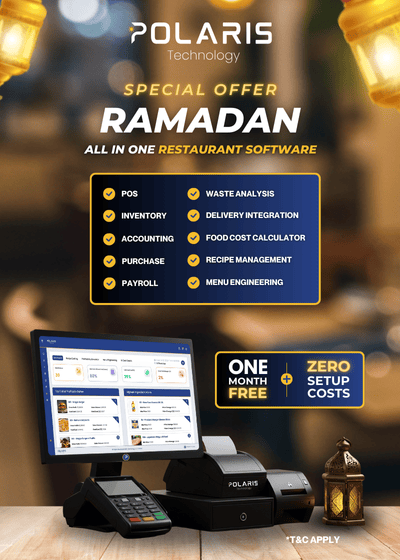Best practices for sourcing suppliers for your restaurant

Introduction
Sourcing the right suppliers is crucial for running a successful restaurant. Effective supplier management ensures you have high-quality ingredients and equipment while controlling costs. This guide outlines best practices for sourcing suppliers, helping you streamline the process and build strong, reliable partnerships. Follow these steps to make informed decisions and enhance your restaurant’s efficiency.
Seven steps for sourcing suppliers for your restaurant
Understand Your Restaurant’s Needs
The first step in choosing suppliers is to understand your restaurant’s needs. Identify what products and services you require, such as fresh produce, kitchen equipment, or cleaning supplies. Knowing these needs will help you target the right suppliers to meet them effectively. A clear list of requirements ensures that your chosen suppliers will support your restaurant’s operations and contribute to its success.
Size is another critical factor. Assessing your restaurant’s expected size helps in choosing suppliers who can consistently meet your demands without compromising on quality. This consideration ensures you can serve your customers efficiently, even during peak times, without facing shortages or delays.
Research Potential Suppliers
Next, you need to find suppliers who fit your needs. Use online resources, and industry directories, and attend trade events to discover new suppliers. Consider looking at reviews and asking for recommendations from other restaurant owners. This research will help you compile a list of potential suppliers and find important information about their products, services, and reputation. This knowledge is crucial for making an informed decision.
Evaluating the reputation and reliability of suppliers is crucial. This can be achieved through reading reviews and asking for references. Reviews from other restaurants or businesses can highlight the supplier’s reliability, quality of products, and customer service. References are equally important, offering firsthand accounts of experiences with the supplier. Speaking directly with current or past suppliers’ customers can clarify what to expect regarding product quality and delivery reliability.
Evaluate Quality and Consistency
Evaluating the quality and consistency of potential suppliers is essential. Request samples of their products to assess their quality and check for consistency in what they offer. Consistent quality ensures that your restaurant can maintain high standards and meet customer expectations. Choose suppliers who can provide reliable products and services consistently, which will help in maintaining the overall quality of your restaurant.
Compare Prices and Negotiate Terms
Comparing prices is a key step in choosing suppliers. Get quotes from different suppliers and evaluate them against your budget. Negotiate terms and conditions to get the best possible deal, including payment terms and delivery schedules. Effective negotiation can help you manage costs and establish favorable terms. Make sure to balance price with quality to avoid compromising on the essential aspects of your supplies.
Negotiating with suppliers is not just about reducing costs; it’s about creating value for both parties. Successful negotiations result in agreements that offer clear benefits to your restaurant while maintaining a healthy, sustainable relationship with your suppliers. By approaching these negotiations with a well-informed strategy, restaurant owners can significantly impact their bottom line and ensure the long-term success of their business.
Evaluate Supplier Reliability and Service
Assess the reliability and service level of potential suppliers. Check their timely deliveries, customer service, and problem resolution. Reliable suppliers should meet deadlines and handle any issues that arise efficiently. Good service ensures that your restaurant operations run smoothly without interruptions. Choosing suppliers with a strong reputation for reliability will contribute to the overall success of your restaurant.
To evaluate a supplier’s reliability, start by examining their track record. This can include asking for references from other restaurants, reading online reviews, and researching their history for any red flags or consistent issues. During the initial phases of engagement, closely monitor delivery times, the accuracy of orders, and the condition of products when they arrive. These early interactions can be very informative about the supplier’s reliability.
Build and Maintain Strong Relationships
Building strong relationships with your suppliers is important for long-term success. Communicate clearly and regularly, and be transparent about your needs and expectations. A good relationship can lead to better service, priority treatment, and favorable terms. Maintaining these relationships through regular communication and mutual respect helps ensure that both you and your suppliers work effectively together.
Building and maintaining strong relationships with suppliers is not a one-time effort but an ongoing process. By prioritizing these relationships, restaurant owners can ensure a stable and efficient supply chain, which is crucial for meeting customer expectations and achieving business success.
Review and Evaluate Supplier Performance Regularly
Finally, regularly review and evaluate the performance of your suppliers. Monitor their delivery timelines, product quality, and service levels. Regular evaluations help identify any issues early and address them promptly. Ongoing assessments ensure that your suppliers continue to meet your needs and help you make adjustments if necessary. This proactive approach helps maintain high standards and supports the smooth operation of your restaurant.
Three ways ERP software can help in managing restaurant suppliers
Order Management:
ERP systems simplify the process of ordering supplies. They allow restaurants to create and manage purchase orders, track their status, and adjust quantities based on current needs. This helps in maintaining optimal inventory levels and reduces the chances of errors.
Inventory Tracking:
ERP software provides comprehensive visibility into inventory levels, helping restaurants monitor stock, predict future needs, and reduce waste. By keeping track of inventory in real-time, ERP systems ensure that you never run out of essential items or overstock.
Supplier Performance Analysis:
ERP systems offer tools to analyze supplier performance, including cost, quality, and delivery times. By reviewing these metrics, restaurants can evaluate which suppliers are performing well and which might need to be replaced or renegotiated.
You can effectively manage your restaurant’s suppliers by following these best practices. Understanding your needs, researching potential suppliers, and evaluating their performance is key to success. Regular reviews and strong relationships with suppliers will ensure consistent quality and service. Implement these strategies to enhance your restaurant’s operations and drive long-term success.

